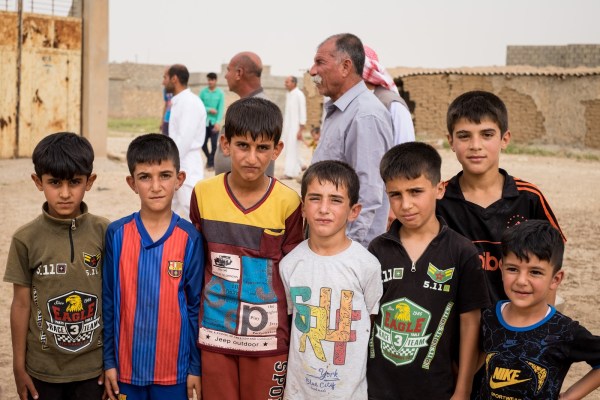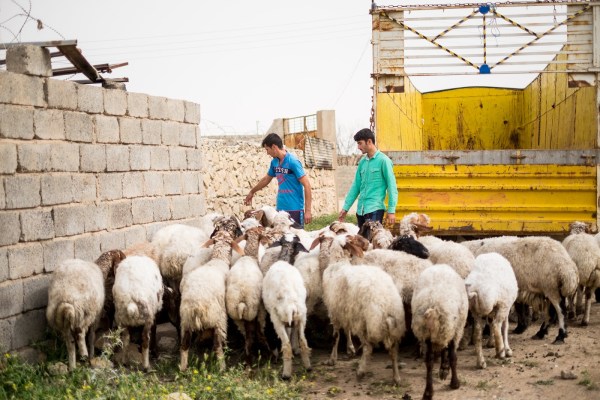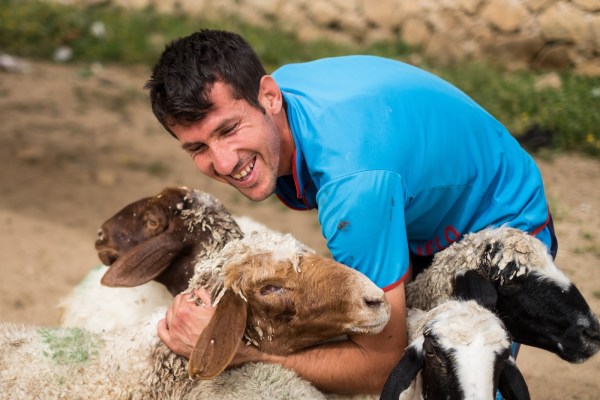Would you sit down with people who may have killed your friends?
After all that death and pain, would you listen to them?
Would you even want to look at them, much less hear their story?
That’s what happened recently in a small room in northern Iraq. Two groups who rarely interact, who’ve endured incredible pain and loss, sat down to talk. Yazidis and Turkmen.
But a few minutes in, this meeting meant for peace seemed doomed to fail.
After initial greetings (which went nicely enough), the decibel level started to rise. Cheeks flushed red, and we began to wonder if peace between at-odds groups was too much to hope for in this case.
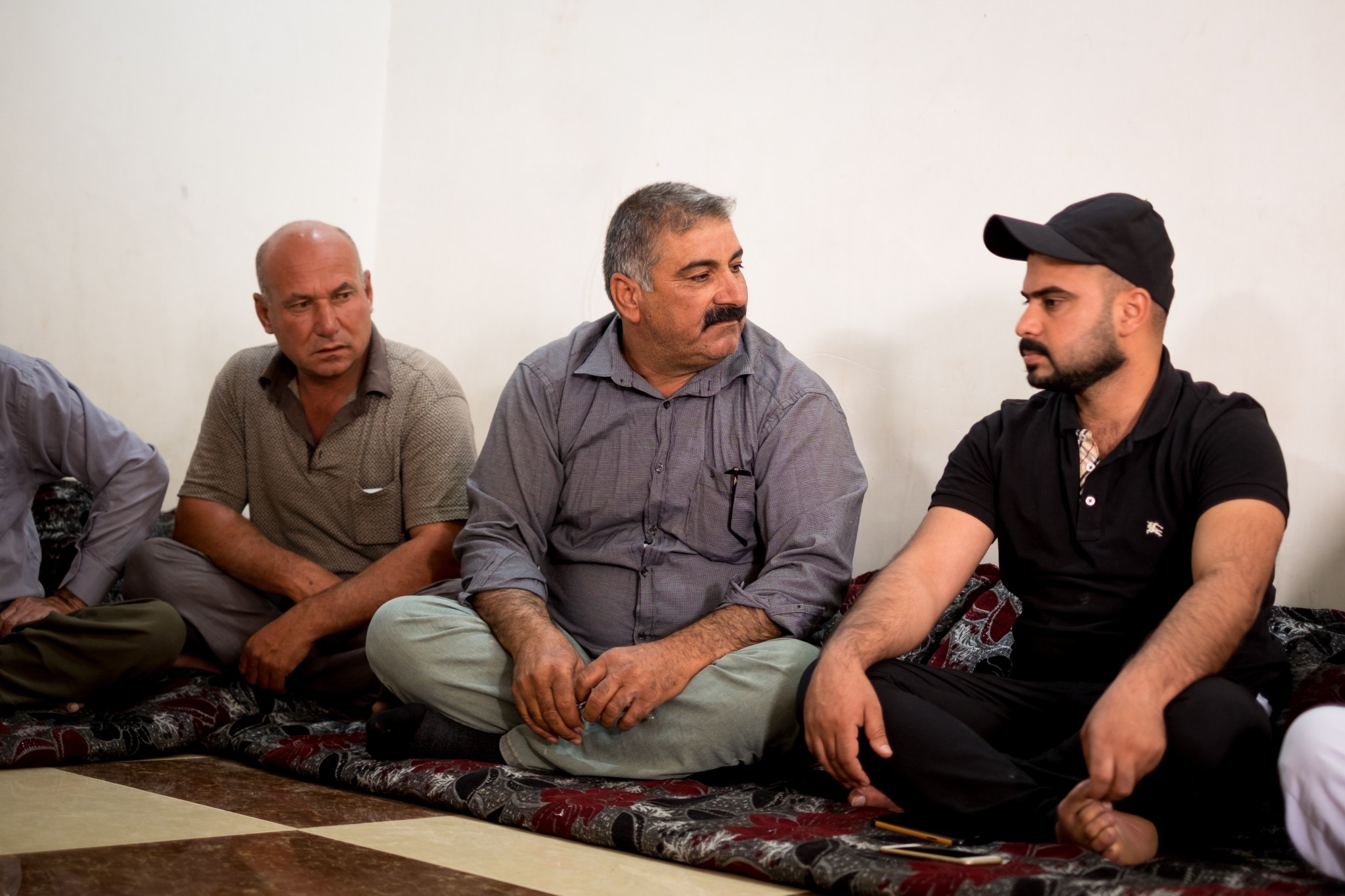
The people gathered in this room came from two different ethnic minorities: the Yazidis and the Turkmen. They met in the home of a Muslim shepherd who offered to host them in order to negotiate the sale of sheep.
Under any other circumstances, a fairly simple transaction.
But if you’ve been following us over the last few years, you may know some of the Yazidi story. In August 2014, ISIS committed genocide against the Yazidis. Very few neighbors came to their aid. Some even betrayed the Yazidis, killing them or handing them over to ISIS.
No group survived ISIS unscathed—Yazidis, Muslims, Christians all suffered. But the Yazidis arguably got the worst of it. They were specifically targeted, slaughtered en masse, bodies piled into mass graves. An even worse fate awaited many who survived: carted off as slaves to be used and abused in horrific ways.
To this day, an estimated 3,000 Yazidi people, mostly women and children, are still missing.
Many Turkmen stood by as the Yazidis were slaughtered. Some even joined in.
Turkmen territory has been a hub of insurgency since the days of the US-led invasion. ISIS found a foothold here, recruiting many of its leaders from Sunni Turkmen communities—though without question, thousands of Sunni and Shia Turkmen suffered terribly at the hands of ISIS.
In other words, it’s complicated.
Trust has been broken. Yazidis and Turkmen rarely do business. They aren’t hanging out over tea or watching football matches together. Their kids don’t play together often. They even have separate schools to make sure their kids don’t interact at all.
There’s a big, sad separation here.
So we gathered leaders and families from these two communities, to sit in a living room and talk.
Just sitting together felt like a success. That’s how bad things can be.
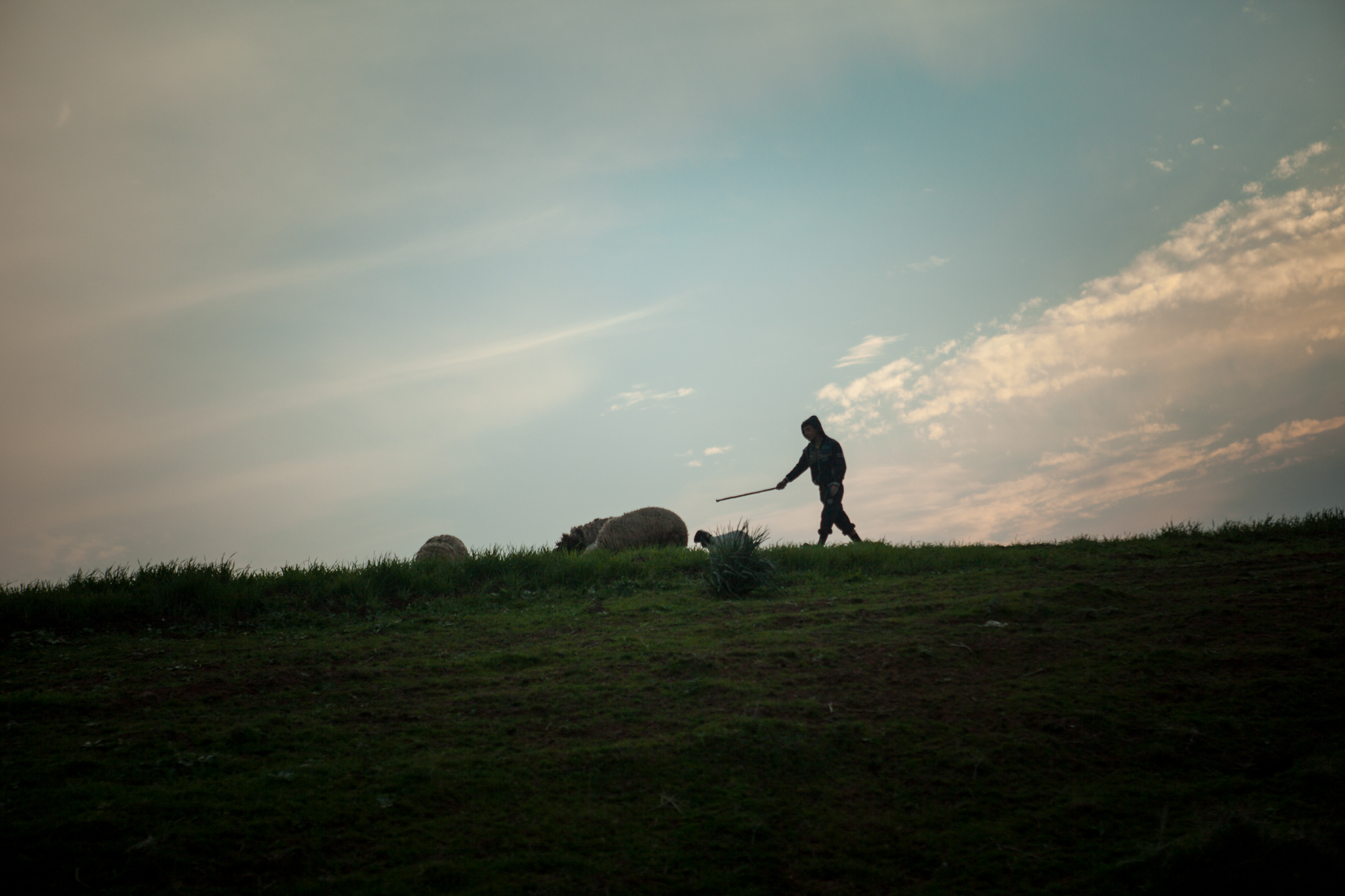
Sometimes people ask if there’s any real point to the work we do. After all, wars keep happening. Iraqis are still feuding. ISIS is still lurking in the shadows, killing people.
Does peacemaking even work?
It’s an entirely fair question. But it begs another, even more important question: how does peacemaking work?
Peacemaking rarely happens at big, fancy conferences.
It’s a popular means of trying to resolve conflict—or talking about conflict resolution, at least. The problem is, big events rarely create the long-term change in us that is needed to foster peace. Peace has to be practiced every day. A one-off event can be a great starting point, but it won’t ever be enough on its own.

Peacemaking also rarely happens if women aren’t involved.
It’s that simple. Long term, you just don’t get where you want to go if it’s only men at the table. You may get a ceasefire. You may enjoy a friendly conversation. But long-term peacemaking is most likely to happen when women are heavily involved, preferably in the lead.
Peacemaking rarely happens when we focus on big, broad goals.
Ending a war, healing the wounds of a genocide, feeding a nation—these are things we can’t fix in a moment. It just can’t happen. If it could, war and genocide and starvation wouldn’t be a big deal. But they are a big deal. We can do something about these problems, but we have to set our sights on the right horizon.
Peacemaking happens in person.
Understanding can happen online, for sure, or from reading books or news articles. But nothing comes close to in-person conversations. It’s no wonder the world seems to be more and more divided, with so much of interaction happening online and so little with people across a table or shoulder to shoulder.
We need to bump into one another, to breathe the same air, or we’ll never enjoy the peace we so desperately need.
So how do we know we’re on track and something real is happening?
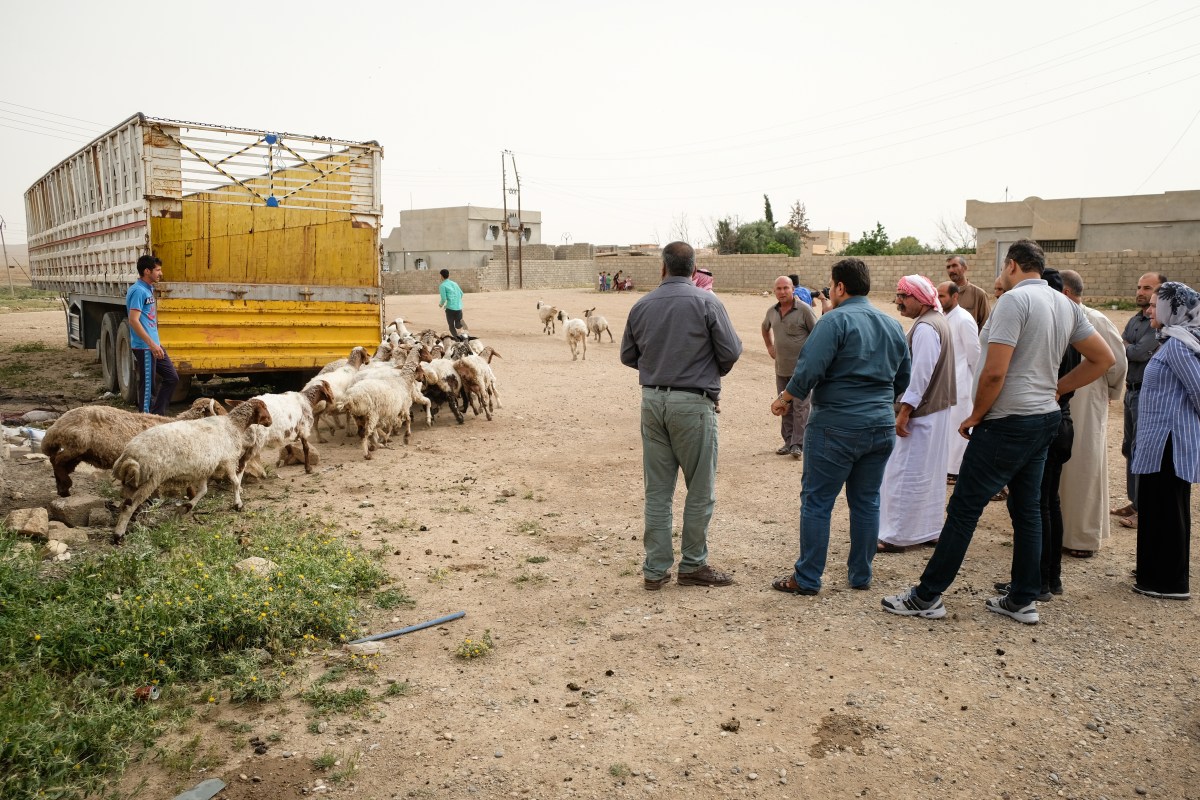
Back to that small room with Yazidis and Turkmen crowded around the edges.
Carpets and pillows and our bodies are lined against the walls. Our host is handing out cans of soda as everyone shifts around on the floor. Greetings are exchanged, codes of hospitality are honored, and the discussion begins.
It started off fine enough, with a mediator extolling all the things the two groups have in common.
“We’re all Iraqis together,” he said. “When one of us hurts, we all hurt. There are no differences between us.”
This went on, until the Yazidi sheikh began to speak, representing the group who endured genocide.
And boy, did he have things to say.
He was passionate. He wasn’t accusatory, per se. But he also wasn’t going to let this meeting become some kind of pattycake session where everyone pretends like everything is peachy.
The sheikh talked about what ISIS did to their women and children, how many of their men and elderly were murdered. He talked about mass graves and how many Turkmen had helped ISIS, to their great shame, and how abandoned the Yazidis felt—still feel, in fact.
The host family hosting the meeting—all of them Turkmen—vehemently denied siding with ISIS. They argued they had suffered too, that their people were also dying, also struggling to survive, and that they consider terrorists like ISIS to be “dogs.”
The tension in the room was growing. The Yazidi sheikh responded, still fiery, and the back and forth continued.
For a moment there, it felt like the meeting was going to be a total failure. Then our founder, Jessica Courtney, said something simple and profound, and it cut through the tension like a knife.
“Today isn’t about fixing everything. Today is about taking a step.”
It’s hard to capture the effect this statement had on everyone. People had been gearing up for an argument, color in their cheeks and metaphorical fists raised.
At these words, they seemed to exhale. Things eased, and the heated debate turned back into a conversation.
We don’t have to fix everything. We can’t fix everything. But we can take a small step, right now, together.
That’s what peacemaking has always, ever been. Peacemaking can be many things, but it is always at least this: small steps, together, over time.
Many prefer to solve the world’s problems in a furious rush, in one day. And when they discover they can’t, they throw up their hands and call it a lost cause.
Peacemaking is about taking steps.
So this meeting between these two at-odds communities was just that. It’s not the kind of thing we can put in some big, glamorous impact report that loads of people will be awestruck over. But there are some who will recognize the power of what happened in that small living room. They’ll want to be part of all this, because they recognize the power of a step.
After the meeting ended, sheikhs from both groups lead us out to the front of the home, and the two communities did business together.
Specifically, Yazidis bought sheep from their Turkmen hosts.
Again, it’s small. But when groups won’t even do business together, watching them walk arm-in-arm outside to inspect and purchase sheep is beautiful. It’s a step.
We all smiled as children chased sheep, as lambs teetered on fresh legs, and as men from both groups talked about meeting again.
One sheikh even told the other, “We’ll know we’ve reached a great step when we can walk in each others’ villages freely and safely.
“I hope to see that day.”
That, friends, would be a truly beautiful step.
We don’t have to fix everything. But we can take a step toward peace. Together.


